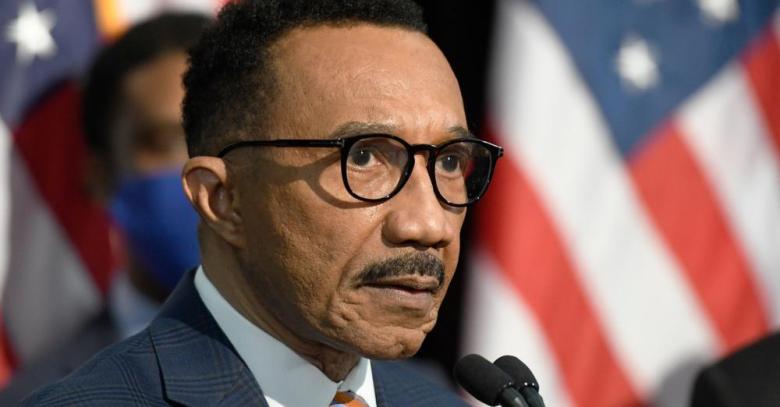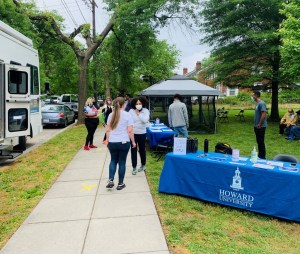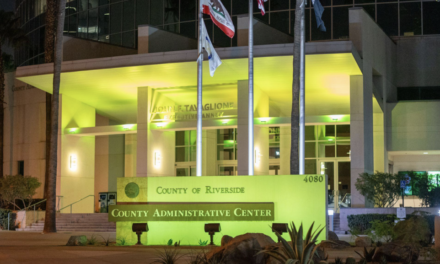
By Congressman Kweisi Mfume
As a proud son of Baltimore, it pains me to see how our city and its surrounding suburbs are affected by gun violence. We cannot hide from it. We must not mask it. We have to deal with it directly.
When there are 12 murders in one week including the killing of a 5-year-old girl, a 13-year-old boy and a 69-year-old woman, it is fair to ask what more can happen? But before something more transpires, we must get all hands-on deck to address this violence problem. It may sound like a bitter pill to swallow but to treat this epidemic of murders we must acknowledge it and take the medicine:
- Using more patrols and teaming up with federal agencies who can help track and trace guns including “ghost guns” made from kits;
- Employing tough love for repeat violent offenders, including supporting and enacting stiff penalties for possession of an illegal firearm and holding judges accountable for sentencing the most dangerous among us; and
- Encouraging witnesses to come forward and testify in violent crime prosecutions, a counter to the “stop snitching culture” that is too prevalent in our community.
Beyond the above immediate prescriptions, we must truly address gun violence through a public health lens — one that puts it into perspective as a preventable disease that can be curbed with the focused help of all segments of our community.
This disease-control approach to gun violence is an effective one. For example Cure Violence, a Chicago-based organization, uses a public health vantage point to help cities across the country combat their gun violence challenges. Under its model, like the Group Violence Reduction Strategy in the Baltimore Mayor’s Office of Neighborhood Safety and Engagement, outbreaks of violent behavior are responded to with three common epidemic-control methods:
- Interrupting transmission – detect and interrupt violent events with credible messengers;
- Containing the risk – provide ongoing behavior change support to highest-risk people; and
- Changing community norms, making sure to disabuse community of the “stop-snitching mentality” and glorifying the allure of the street.
Cities that have applied these methods have seen as much as 73% drops in shootings and killings.
In 2011, Baltimore reported 196 homicides. It was the first time the city reported less than 200 murders in a single year since 1998. This reduction in violent deaths, sadly, was short-lived. Homicides reached 335 in 2020, which was just 13 less than the 348 murders posted in 2019. We recently eclipsed the 300-murder mark this year.
It is no coincidence that the number of killings has continued to increase alongside record-high gun sales in Baltimore and throughout the nation. According to provisional data from the Center for Disease Control’s National Center for Health Statistics, the year-over-year increase in the U.S. murder rate rose 30% from six homicides per 100,000 people in 2019 to 7.8 homicides per 100,000 in 2020. The CDC’s findings align with the FBI’s tabulation of the nation’s murder rate within the same period. This is the largest increase in U.S. homicides in 100 years.
At the same time, a surge in gun sales from 2019 to 2020 hit an all-time high. Experts attribute this rise in gun sales to nationwide anxiety due to the pandemic as well as well as increased divisions amongst Americans in general. In 2021, we have seen gun sales rocket to a record-high 21 million accompanied by record-high gun deaths at 32,274 individuals.
I propose we shift our assessment of gun violence so that we see it as a health crisis where the lack of opportunities in education, economic development, housing, and other public health factors compound the problem. Before we read about the next set of shootings, we must promise to approach this problem in new ways to battle this horrible plague.
All of us can come together to attack the gun violence epidemic on multiple fronts. With help from the faith community, we must instill in our children a sense of right from wrong and a healthy respect for God and one another. We must beat this disease just as we beat other challenges presented to us throughout Baltimore’s history. It must be a priority for all who live in, work in, and serve this great city.
The opinions on this page are those of the writers and not necessarily those of the AFRO. Send letters to The Afro-American • 145 W. Ostend Street Ste 600, Office #536, Baltimore, MD 21230 or fax to 1-877-570-9297 or e-mail to editor@afro.com
Help us Continue to tell OUR Story and join the AFRO family as a member – subscribers are now members! Join here!
The post Op-Ed: Let’s not mask the epidemic of gun violence killing our people appeared first on AFRO American Newspapers .










